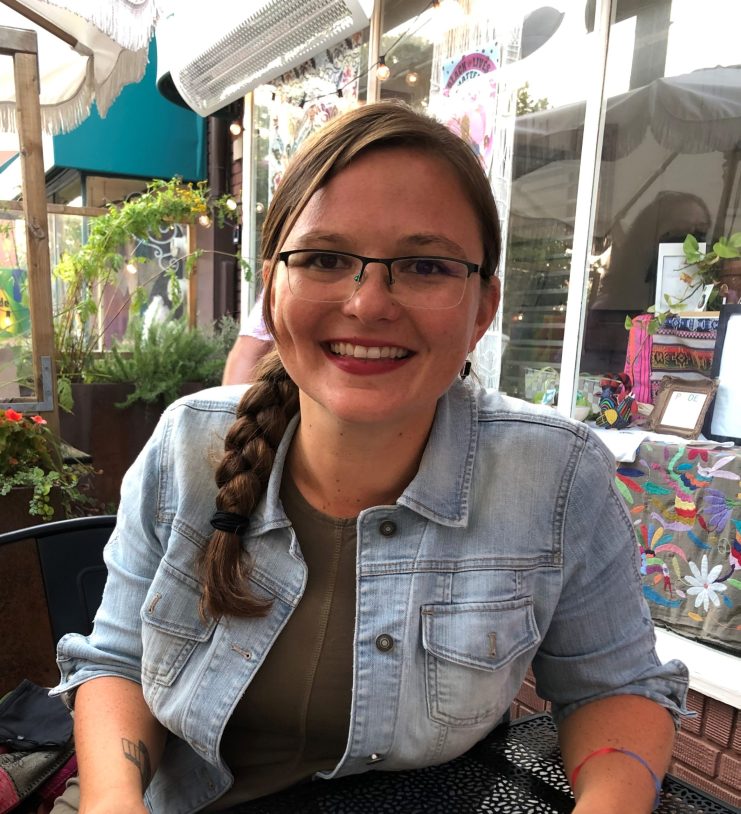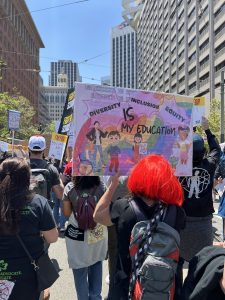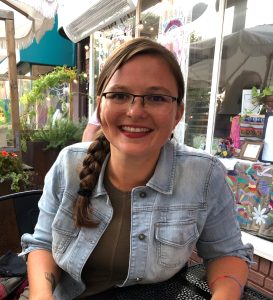
Confronting Deficit Thinking to Improve Inclusion Experiences for Special Education Teachers and Students
I began this school year with a lofty goal: I wanted to facilitate the transition of my large, comprehensive high school into a more inclusive space that welcomed more students with Individualized Education Plans (IEPs) into the general education (GenEd) classroom. I set out on this mission in my new role as a Professional Learning Community (PLC) Lead and continuing in my role as Site Equity Team (SET) Lead, each role with its individual objectives. As a PLC Lead, I encouraged colleagues from different departments to use inquiry cycles and data to gauge the success of various high-engagement strategies with identified focal students in the classroom. As a member of the Equity Team, I gathered and analyzed data as it pertained to inclusion and co-teaching. We developed and pushed out surveys to assess attitudes. We also conducted listening sessions with the only existing co-teaching partnership on campus to gain deeper insights into the successes and challenges of that teaching model.
One of my immediate observations was that what we’ve been doing isn’t working for students. According to the CA Dashboard, students with IEPs were the lowest-performing group by every indicator. In fact, their California Assessment of Student Performance and Progress (CAASPP) scores were low and in rapid decline. I saw that our school was behind our district, which was way behind the state standards for inclusion, which expected 70% of students with IEPs to spend >80% of their day in the GenEd classroom. The district was at 51% inclusion, and our school was only at 40%. Personally, I believe there is a direct link between those inclusion rates and student outcomes.
My second big observation was that many of my colleagues, especially my fellow SpEducators, were quite uncomfortable with the concept of co-teaching and moving towards inclusion. During an Open House event, I had the opportunity to get some face time with my department about their perceptions. One colleague stated, “Well, the GenEd teacher is going to get frustrated because the co-taught class isn’t accomplishing as much as the GenEd.” Another jumped in to insist, “I REFUSE to just be a glorified Aide.” Others expressed concern about the students’ capabilities and willingness to engage in those spaces, “Well, it’s hard to get them to care. They don’t want to take [CAASPP], don’t take it seriously, so why does it matter?” In summary, most seemed to think that the status quo was fine, that the kids are doing good enough with the way things exist currently, and (most alarmingly) that we as educators are powerless to do anything about it.
It was around this time that I was a Public Learner at Lead by Learning’s White Educators AntiRacist Inquiry Network (WEAIN). At previous sessions, I enjoyed lively book chats with other educators from across the Bay who were also grappling with how white supremacy culture shows up in classrooms and school systems. In WEAIN we discussed equity gaps and traps and the value of deep conversations with supportive challenges to folks’ implicit biases.
As a Public Learner, I took my seat at the front of the big open room and shared my disappointment with my colleagues’ deficit thinking about students and our general ed peers, and my willingness to relinquish responsibility as it relates to student outcomes. The other educators in WEAIN listened intently as I described the equity traps my colleagues were caught in. They began to ask me questions to help uncover where some of the resistance and defensiveness could be coming from. Through the structured conversation, I was reminded of the importance of calling people into the conversation rather than calling them out for their problematic perspectives in accomplishing successful transformative change. I appreciated the opportunity to discuss these perplexing issues with an equity-focused community of educators who were willing to troubleshoot with me. After some discussion and reflection around which Supportive Challenge talk moves I could utilize to continue to move the needle forward or redo some of those interactions, I set out again on my mission.
The Public Learning opportunity inspired me to:
- Work with our union and bargaining team on updating the CoTeaching MOU.
- Become a Site Representative Alternate who participated in all Rep Council meetings and took action at every request.
- Volunteer to co-lead a new campaign called Justice For All, which aims to improve the working conditions of SpEducators and service providers in order to improve the learning conditions for students with IEPs.
- Read a new book – A Collective Bargain: Unions, Organizing, and the Fight for Democracy – which offered new insights into the power of deep conversations and face-to-face connection.
Thanks to my work with Lead by Learning, both through WEAIN and as a PLC Lead, I feel more prepared with new tools in my proverbial toolbox around how to influence others to do what’s best for students through data gathering, inquiry cycles, and Supportive Challenge. In bargaining discussions, I tried to center the data about student performance and outcomes and the moral imperative to make meaningful changes to our system. In discussions with GE or elementary colleagues, I sought to understand and surface values regarding how the proposed changes might impact them.
 Moving forward, I’m planning to attend Troublemakers School with some union buddies. We’re going to get trained, then organized. The plan is to connect with every member of the union this summer and find out what is important to them as we move into contract negotiations in the fall. My focus will particularly be on talking to SpEducators across the district and figuring out what systemic changes would make inclusion feel less scary and more invigorating. My expectation is that I will be able to apply my newly acquired skills to galvanize support and push for a better, more inclusive learning environment for students by demanding improved working conditions for the educators who serve them. When we fight, we win.
Moving forward, I’m planning to attend Troublemakers School with some union buddies. We’re going to get trained, then organized. The plan is to connect with every member of the union this summer and find out what is important to them as we move into contract negotiations in the fall. My focus will particularly be on talking to SpEducators across the district and figuring out what systemic changes would make inclusion feel less scary and more invigorating. My expectation is that I will be able to apply my newly acquired skills to galvanize support and push for a better, more inclusive learning environment for students by demanding improved working conditions for the educators who serve them. When we fight, we win.
 Rose Darpino is currently an Education Specialist at Dublin High School, where she has worked for the past 6 years. Prior to that, she taught English for 2 years in Mexico, Colombia, and Guatemala. She also worked in charter and nonpublic schools across the Bay, giving her over 15 years of experience working in education. In her free time, Rose loves to stay active – traveling, roller skating, hiking, dancing, and supporting her community through civic engagement.
Rose Darpino is currently an Education Specialist at Dublin High School, where she has worked for the past 6 years. Prior to that, she taught English for 2 years in Mexico, Colombia, and Guatemala. She also worked in charter and nonpublic schools across the Bay, giving her over 15 years of experience working in education. In her free time, Rose loves to stay active – traveling, roller skating, hiking, dancing, and supporting her community through civic engagement.
Interested in working with Lead by Learning to support your educators and teacher leaders? Connect with a member of our team to learn more about our partnerships.
